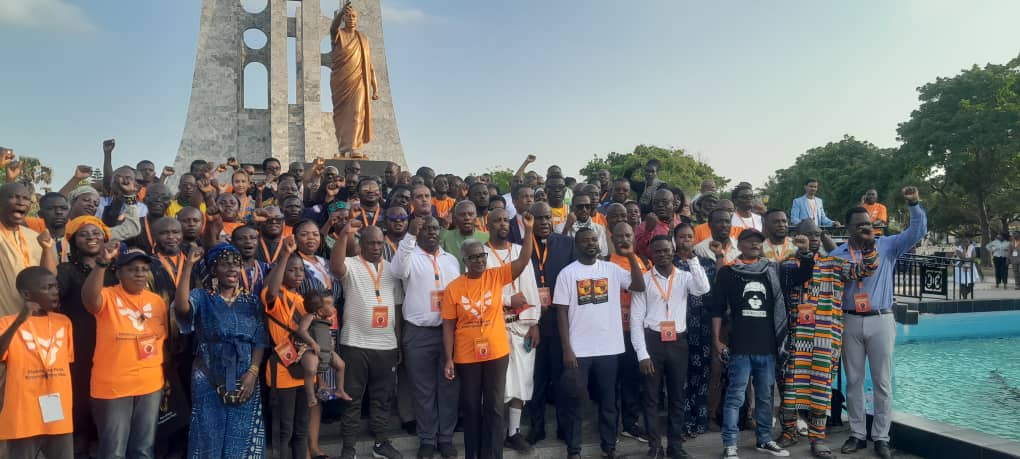The Pan-African Progressive Front (PPF), has adopted a major continental roadmap known as the Accra Declaration, marking 80 years since the historic 1945 Manchester Pan-African Congress that ignited a coordinated struggle against colonialism and imperialism across Africa.
Announced on November 19, 2025, in Accra, the declaration sets out an ambitious agenda aimed at completing the liberation project envisioned by early Pan-African revolutionaries.
Delivering the declaration, Kwasi Pratt Jnr. emphasized that Africa’s complete liberation requires full political and economic unification driven by popular participation.
He stressed that the wealth of Africa must be socially owned and democratically managed for the benefit of all its people, including the diaspora.
The Accra Declaration calls for Africa to reclaim full control of its natural resources, land and strategic industries. It also outlines a comprehensive plan for continental industrialization, prioritizing manufacturing, technology and value-added production.
It envisions an Africa-wide network of railways, roads, energy corridors and digital infrastructure connecting capitals and major cities to strengthen African markets and reduce external dependency.
On agriculture, the declaration insists that farming must be reorganized to ensure food sovereignty, with priority given to feeding African populations before export.
It further proposes the creation of an independent African monetary system free from foreign control and demands the cancellation of illegitimate external debts imposed through decades of imperialist manipulation.
Education and human development also featured prominently. The declaration advocates for a network of Pan-African universities dedicated to training scientists, engineers, health professionals and skilled workers essential to Africa’s industrial, agricultural and social sectors.
On security, it calls for the development of Africa’s own military-industrial capacity and affirms that there should be no foreign military presence on the continent.
The Accra Declaration also placed strong emphasis on reparations and global justice, urging Africa and its diaspora to build a unified legal and political framework to pursue restitution for slavery, colonialism and ongoing neo-colonial exploitation.
The declaration reaffirmed Africa’s solidarity with oppressed peoples across the world and calls for the continent to use its political influence and economic resources to advance global social and human justice.
The event revisited the spirit of the 5th Pan-African Congress held in Manchester in October 1945, where workers, students, intellectuals, women and freedom fighters demanded the political and economic liberation of Africa.
Delegates at that historic congress condemned colonialism, imperialism and racism, asserting that Africa’s resources belonged to its people and urging total liberation and continental unity under a socialist framework.
Speakers at the Accra gathering honored the legacies of Kwame Nkrumah, George Padmore, Amy Ashwood Garvey, W.E.B. Du Bois, Jomo Kenyatta, Ras Makonnen and millions of unnamed revolutionaries whose sacrifices laid the foundations of modern Pan-Africanism.
They noted that although many African nations now hold political independence, the structures of economic domination remain through foreign control of finance and trade, exploitative contracts and burdensome debt.
In a collective pledge, the PPF vowed to complete the Pan-African revolution envisioned in 1945 by building a united Africa that controls its land, labor, resources and destiny, an Africa that uplifts women, youth and workers and stands as a beacon of freedom for all humanity.
They declared that the era of Africa’s economic subjugation will no longer be tolerated and announced the beginning of a new phase defined by Pan-African solidarity, sovereignty and human development.
The declaration was formally submitted for adoption by the conference.


